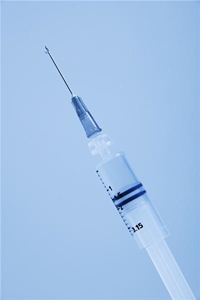You’ve dreamed about it all, from the first contraction to baby’s first cry. But have you given thought yet to what happens next? In all the chaos that accompanies delivery day, it’s an understatement to say you won’t be in your right frame of mind once your baby arrives. So, let us help you make one of the biggest decisions of your postpartum life: Should you submit your newborn to a vitamin K shot? The answer is easy – say yes.
Read more: Could this ordinary nursery item be the most dangerous thing to your baby?
Just after your son or daughter enters the world, he or she will be whisked away for a series of vaccinations – hepatitis B, an antibiotic treatment for the eyes, and vitamin K. State laws vary, but most parents do have the option to waive these. But just because you can decline, doesn’t mean you should, especially when it comes to vitamin K. Here’s why:
A scary situation
A vitamin K injection has been a standard of newborn care since 1961. The shot safeguards babies against a rare, but potentially fatal condition called vitamin K deficiency bleeding. VKDB is just what it sounds like – a scary illness brought on by a lack of blood-clotting vitamin K. Because the vitamin crosses the placenta only in trace amounts, newborns need a boost of it once they enter the world. VKDB can strike infants during the first few days or first 12 weeks of life, causing hemorrhaging anywhere in the body – brain included. This bleeding often has no accompanying warning signs and babies appear healthy otherwise, making it all the scarier.
The good news? VKBD is almost entirely preventable with one injection post-birth. While the American Academy of Pediatrics has recommended the shot since the 1960s, some anti-vaccination groups claim that preservatives in the injection have led to childhood leukemia. Rest assured, the AAP has issued a statement making certain new parents understand there is no correlation between vitamin K and blood cancers.
Read more:
The riskiest place for your baby to sleep
So, what do you think? Will you be submitting your newborn to a vitamin K shot?
